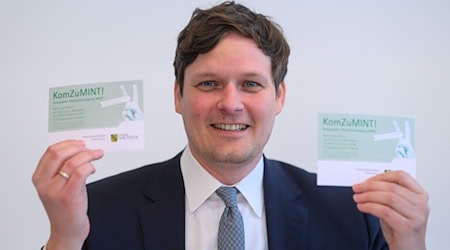For the 19th time in a row, Saxony has taken first place in the Education Monitor. This means that, as in previous years, the Free State has the best education system in Germany in the comparative study, according to the employer-affiliated Initiative Neue Soziale Marktwirtschaft. Bavaria is in second place, followed by Hamburg and Thuringia.
Bremen and Hamburg are in last place. Compared to the previous year, Berlin made the biggest leap forward, improving from 15th to 12th place.
The comparative study uses 98 indicators to examine the education systems of the federal states. According to the authors, the evaluation is carried out explicitly from an education economics perspective. It analyzes the extent to which the states' systems reduce educational poverty, contribute to securing prosperity, help to secure skilled workers and promote growth. The permeability of the respective education system and the extent to which equal educational opportunities are achieved are also compared.
Saxony with "excellent education policy"
Saxony achieved the top position in the fields of funding infrastructure, school quality, educational poverty and research orientation. "We congratulate Saxony, which once again took the top spot with a truly excellent education policy," said Thorsten Alsleben, Managing Director of the New Social Market Economy Initiative, according to the press release.
Federalism is criticized by many in education policy, but competition between the federal states has advantages. "It shows which policies produce positive and which negative results."
In a statement, Minister of Education Christian Piwarz expressed his delight at the renewed first place. "This result is a credit to all those who are committed to the well-being of the Saxon education system." Now the course must be set for the future, and improving the supply of teachers remains the main task.
This is now the 21st Education Monitor. The complete results with details on the federal states will be presented on Tuesday.
According to study director and education economist Axel Plünnecke from the Institut der Deutschen Wirtschaft (IW), the greatest improvements in the past decade have been in the areas of internationalization, funding infrastructure and childcare conditions. "In contrast, the challenges have increased significantly in the areas of integration, school quality and educational poverty."
Copyright 2024, dpa (www.dpa.de). All rights reserved










